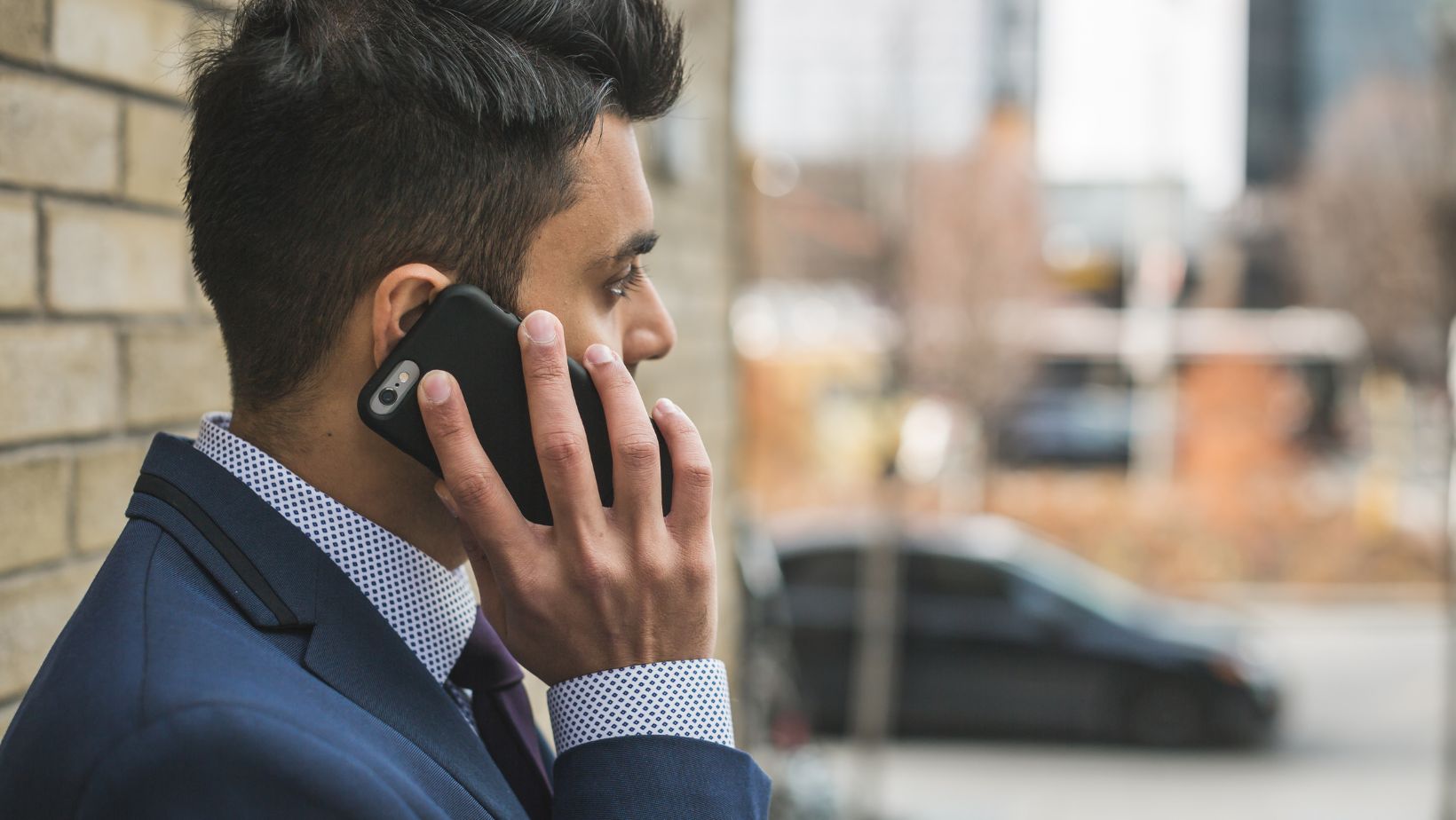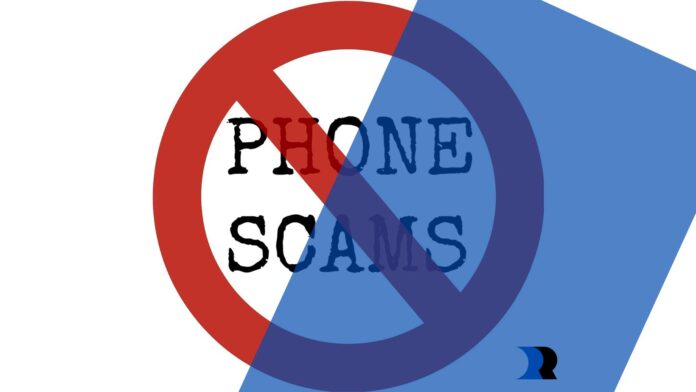In today’s digital age, scam calls have become increasingly prevalent, with scammers employing sophisticated tactics to deceive unsuspecting individuals. These fraudulent calls can lead to financial loss, identity theft, and other negative consequences.
Therefore, it is essential to know how to identify and protect yourself from scam calls. In this comprehensive guide, we will explore the signs that indicate you’re talking to a scammer and provide practical tips on how to stay safe.
Introduction
Scammers are becoming increasingly adept at manipulating individuals through phone calls, making it crucial to be aware of the signs that indicate a scam call. According to a report by Truecaller, Americans reported receiving an average of 32 spam calls per month, resulting in a staggering $10 billion in losses in 2019 alone. Scammers employ various tactics, such as using familiar numbers or adopting aggressive approaches, to increase the likelihood of their targets answering the phone. If you’ve ever wondered “Who called me,” it’s essential to stay vigilant.
To combat the rising threat of scam calls, it is vital to recognize the warning signs and take proactive measures to protect yourself. By familiarizing yourself with these signs, you can avoid falling victim to scams and safeguard your personal and financial information.
Odd-Looking Phone Number
One of the first signs that you may be dealing with a scam call is an odd-looking phone number. Scammers often use area codes that appear domestic but are associated with foreign countries. For example, an area code of 473 is associated with Grenada, Carriacou, and Petite Martinique. Unless you have connections to these countries, it is highly likely that calls from such numbers are scams.
However, it’s important to note that scammers also utilize domestic phone numbers. If the next three digits following the area code are “0” or “1,” it is advisable to exercise caution as these numbers are often not associated with legitimate individuals or companies.
Delayed Greeting
When answering a call, pay attention to any delays in the response from the person on the other end. If there is a noticeable pause or a series of clicks or tones before an actual human responds, it is likely that an automatic dialer is being used. Scammers make numerous calls, waiting for someone to answer, which explains the delay in their response.

To protect yourself, consider adopting a policy of ending the call if the person on the other end does not speak immediately. This approach ensures that you don’t waste time engaging with potential scammers.
The Caller Can’t Communicate
While it is common for legitimate companies to use foreign call centers, their employees typically possess a decent command of the English language. If the person on the other end of the line struggles to construct coherent sentences or lacks English proficiency, especially when claiming to represent a large American company, it is a cause for suspicion. Legitimate companies vet their employees and ensure they possess adequate language skills.
If you encounter a caller who cannot communicate effectively, it is best to remain highly doubtful and terminate the call. Providing personal information to such individuals can put your privacy and security at risk.
Caller Claims a Problem With an Unknown Account
A clear indication that you are dealing with a scammer is when they mention a problem with an account that you are not familiar with. Scammers often pretend to be representatives of credit product issuers or utility providers, claiming that there is an issue with your account. However, if you don’t have an account with the mentioned company, it is crucial not to take the bait.
In such situations, simply hang up the call. If you are genuinely concerned about the mentioned account, it is advisable to contact the company directly using their official contact information to verify if there is indeed an issue.
The Tone of the Conversation Becomes Heated
When engaged in a conversation with a potential scammer, pay attention to any sudden changes in the tone. Initially, the conversation may appear normal, but as you start questioning the legitimacy of the call, the person on the other end may become irritable or aggressive. This change in attitude is an intimidation tactic employed by scammers to pressure their targets.
If you encounter an uninvited phone call where the person becomes hostile, it is a strong indication that the call is a scam. In such cases, it is best to hang up immediately and consider blocking the caller to prevent further contact.
You Have to Identify Yourself
When receiving a call, it is important to remember that the person on the other end should already know who you are. If they ask you to provide personal data, such as your name, Social Security number, address, or account number, it is a clear sign that the call is a scam. Legitimate companies or organizations will never ask you to provide such information during an unsolicited call.

To protect your personal information, avoid sharing any sensitive data with unknown callers. If you have concerns about an account mentioned during the call, hang up and contact the company directly using their official contact information to inquire about the issue.
Caller Uses a Generic Greeting
Another red flag that indicates a potential scam is when the caller uses a generic greeting instead of addressing you by name. If the caller does not greet you using your name, it suggests that they do not have specific information about you. This is often the case when scammers have a list of potential targets or rely on random dialing.
For example, you may receive calls that start with a generic greeting like “Hello, Citizen!” Such greetings are dead giveaways that your phone number is either on a list of potential targets or that the scammer is dialing numbers randomly.
The Call Starts With Threats or Dire Warnings
A fraudulent call often begins with threats or dire warnings to instill fear in the recipient. Scammers may impersonate government agencies, such as the IRS, and claim that you owe a substantial amount of money or that you will face legal consequences if you don’t comply with their demands. These intimidating tactics are meant to pressure individuals into providing personal information or making immediate payments.
It is important to remember that legitimate government agencies or reputable companies will never initiate contact in such a manner. If you receive a call that starts with alarming threats or warnings, it is a strong indication of a scam. Hang up immediately and report the call to the appropriate authorities.
You Need to Act Fast to Take Advantage of an Offer
Scammers often prey on individuals’ emotions by creating a sense of urgency to exploit their targets. They may offer limited-time deals or claim that you have won a prize, but only if you act immediately. While these offers may seem tempting, it is crucial to take the time to question their validity.
If you genuinely believe that you have won a prize or received a special offer, inform the caller that you will call the company back to verify the information. If the caller insists that you must decide immediately, it is highly likely that it is a scam.
This urgency tactic is also commonly used in debt settlement offers that claim to be available only for a limited time. However, legitimate programs and services do not require immediate decisions or payments.
Responses Are Canned
During a conversation with a potential scammer, pay attention to the responses you receive. If the person on the other end consistently provides canned, scripted responses, it is a strong indication of a scam. Scammers often use deepfake technology or pre-recorded messages to create the illusion of a genuine conversation.
To identify such responses, try saying something unexpected or off-topic. A genuine human will react and respond accordingly, while a bot or pre-recorded message will likely continue with its predetermined script. By testing the authenticity of the conversation, you can protect yourself from falling victim to scams.
Conclusion
Scam calls pose a significant threat to individuals’ financial security and personal information. By familiarizing yourself with the signs of a scam call and reverse phone lookup services, you can better protect yourself from falling victim to fraudulent schemes. Remember to be cautious when answering calls from unknown numbers, look out for red flags like generic greetings or urgent demands, and never provide personal information or make payments to unknown callers.
If you encounter a scam call, report it to the appropriate authorities, such as the Federal Trade Commission (FTC). By taking proactive measures, staying informed, and trusting your instincts, you can effectively safeguard yourself and prevent scammers from exploiting you. Stay vigilant and informed, and don’t let scam calls compromise your security.


